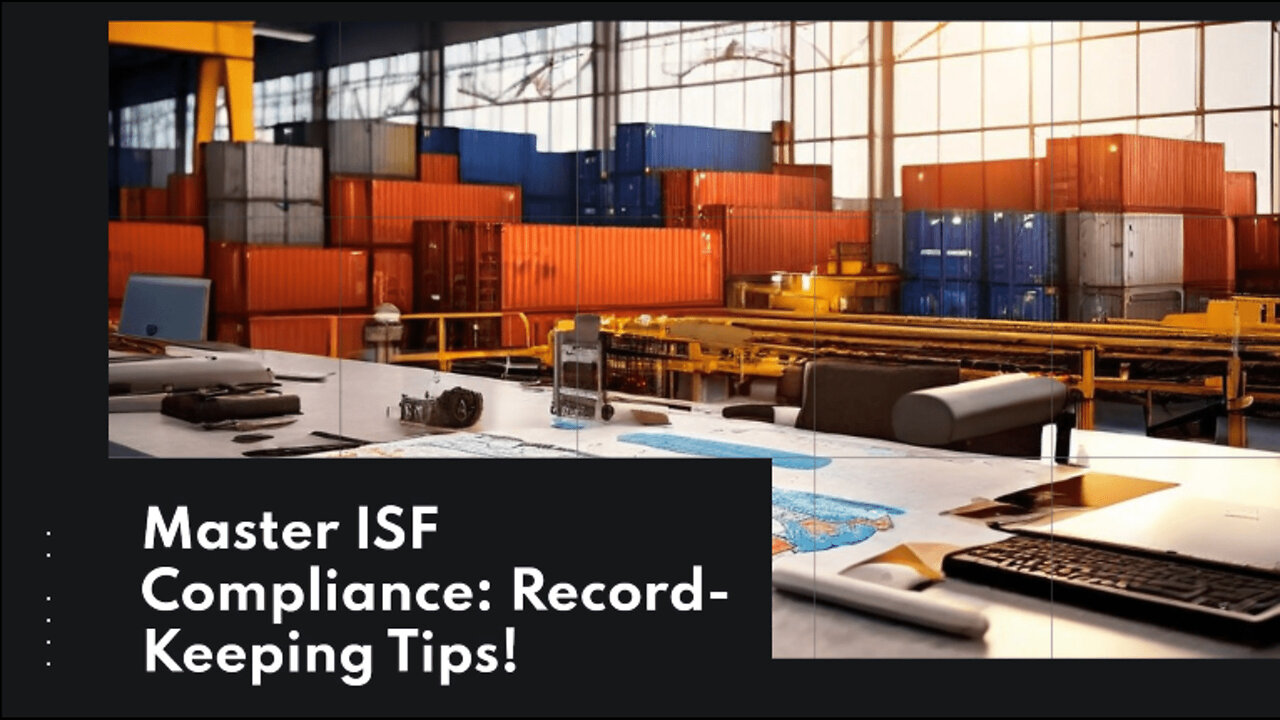Premium Only Content

Mastering ISF Compliance: Best Practices for Smooth Operations
ISF Checklist || 805-970-7918 || contact@isfchecklist.com || www.isfchecklist.com
This video discusses best practices for Importer Security Filing (ISF) compliance, focusing on record-keeping and documentation. Maintaining accurate records and proper documentation is crucial for avoiding penalties, streamlining customs processes, and maintaining a good relationship with customs authorities. The first best practice is to ensure accuracy in filing by double-checking all data. Consistency in filing procedures and record-keeping is also emphasized to avoid discrepancies and facilitate customs review. Timeliness is critical, and ISF filings should be submitted within the required time frame. Completeness of the filing, including all required data elements, is essential. Keeping records organized, effective communication with all parties involved, and investing in staff training and education are additional best practices for ISF compliance.
#usimportbond #isfcustomsbroker #uscustomsclearing #isfentry
Video Disclaimer Here: This video is purely educational and has no ties with the US government.
00:20 - Accuracy is crucial in ISF compliance, so double-check all data in your filing to avoid penalties and delays.
01:02 - Consistency is key: establish standardized procedures for filing ISF to ensure uniform treatment of all shipments.
01:29 - Timeliness is critical; submit ISF filings within the required timeframe to prevent delays and penalties.
01:50 - Completeness of your filing is essential; include all required data elements to avoid potential issues.
-
 2:15:01
2:15:01
Steven Crowder
3 hours agoHow Trump's Deportation Plan will Save America... And Europe
199K165 -
 LIVE
LIVE
LFA TV
17 hours agoDEPORTATION STATION! ALL ABOARD! | LIVE FROM AMERICA 1.23.25 11am
6,120 watching -
 LIVE
LIVE
Grant Stinchfield
50 minutes agoThe Mass Deportation Plan is NOW Underway!
488 watching -
 LIVE
LIVE
The Shannon Joy Show
1 hour ago🔥🔥LIVE - Exclusive With CATHERINE AUSTIN FITTS! Technocracy, Stargate, The Bitcoin Bailout🔥🔥
706 watching -
 23:44
23:44
Dave Portnoy
3 hours agoDavey Day Trader Presented by Kraken - January 23, 2025
62.4K7 -
 1:28:41
1:28:41
Graham Allen
4 hours agoSenate Is STALLING ALL Trump Nominations!! + Is Trump Going After The Bidens?!
125K98 -
 4:56
4:56
Tactical Advisor
2 hours agoPSA X5.7 Update | Shot Show 2025
25.6K4 -
 2:58:41
2:58:41
Matt Kohrs
10 hours agoTrump Addresses WEF || The MK Show
57.7K4 -
 34:27
34:27
Rethinking the Dollar
2 hours agoTrump’s AI Decisions Spark Backlash – What’s Next?
20.3K4 -
 33:37
33:37
BonginoReport
6 hours agoGen Z Commies Are Plotting Violent Revolution Against Trump (Ep.124) - 01/23/2025
85.7K137